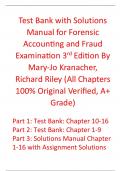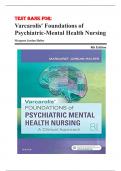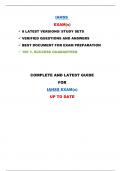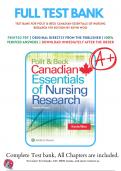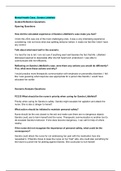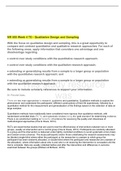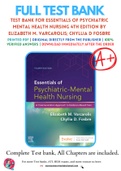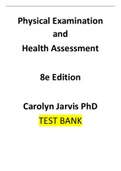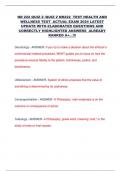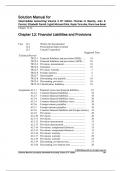Exam (elaborations)
Test Bank with Solutions Manual for Forensic Accounting and Fraud Examination 3rd Edition By Mary-Jo Kranacher, Richard Riley (All Chapters 100% Original Verified, A+ Grade)
- Course
- Institution
Test Bank with Solutions Manual for Forensic Accounting and Fraud Examination 3rd Edition By Mary-Jo Kranacher, Richard Riley (All Chapters 100% Original Verified, A+ Grade) Test Bank with Solutions Manual for Forensic Accounting and Fraud Examination 3rd Edition By Mary-Jo Kranacher, Richard Ri...
[Show more]
